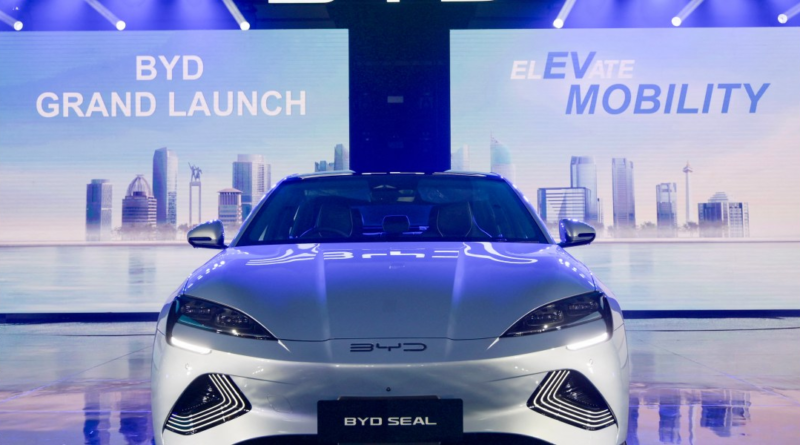Italy has been trying to woo Tesla-beating BYD as the second auto giant on its shores
BYD Co. has been contacted by the Italian government as part of the country’s efforts to attract a second car manufacturer beyond Fiat maker Stellantis NV.
“We have some contacts to discuss about that,” Michael Shu, managing director of BYD Europe, said in an interview at the Geneva International Motor Show. The need for a second European plant “depends on our sales — now we’re making very good progress.”
Prime Minister Giorgia Meloni’s government has plans to attract a new major carmaker to Italy after Stellantis signaled it may move some production to lower-cost countries. Manufacturers are under pressure to become more efficient in the EV transition with battery vehicle prices still far higher than equivalent combustion-engine cars.
A government representative for the industry ministry declined to comment on discussions with BYD.
Industry Minister Adolfo Urso said this month the country “backed the arrival” of a second producer, calling it “a project we have been working on for months with meaningful talks with foreign partners.”
BYD, which overtook Tesla Inc. as the world’s biggest EV maker last year, in December confirmed plans to build a factory in Hungary to help boost sales in the region. It’s too soon to say when and if a decision will be made on a second one, Shu said. BYD wants to build up its local supply network in Hungary as part of that push.
“We want to go as deep as possible” with the local supply chain, Shu said. “Everything we do is for localization.”
The move has raised the prospect of yet another competitor to Europe’s domestic carmakers, particularly for Volkswagen, Stellantis and Renault that serve the competitive mass-market segment.
BYD’s investment in Hungary comes a few months after the European Union announced a probe into state subsidies to Chinese EV makers, and could help the company avoid any additional import tariffs. The manufacturer has been cooperating in the investigation, Shu said.
“We have strong products and technology and supply-chain management flexibility,” he said. “Based on facts, I don’t think” the company’s success in Europe “is coming from subsidies.”




